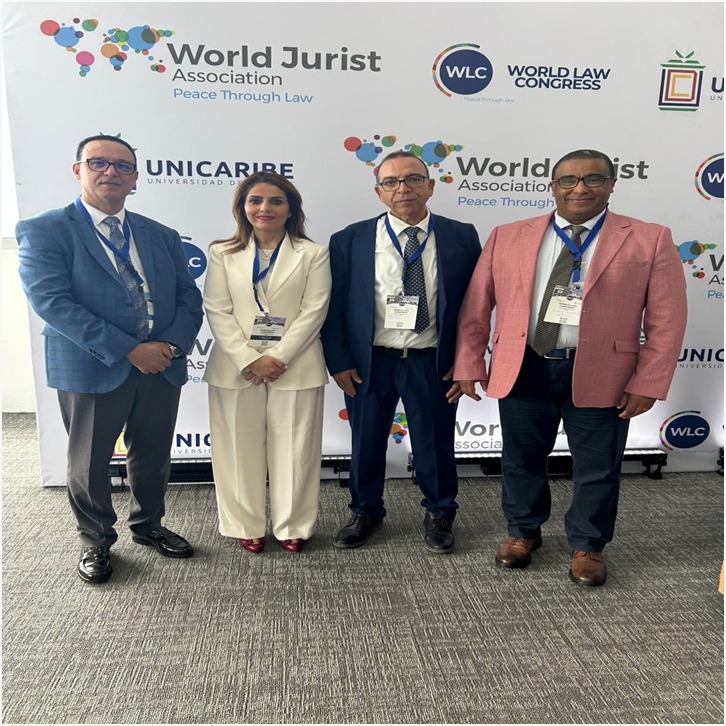Moroccan jurists actively participated in the 29th edition of the World Law Congress, held from May 4 to 6, 2025, in Santo Domingo, Dominican Republic.
This global event, organized by the World Jurist Association (WJA) and the World Law Foundation (WLF), brought together more than 300 speakers from 70 countries around the theme: “New Generations and the Rule of Law: Shaping the Future.”
The opening ceremony, hosted by the Autonomous University of Santo Domingo, was attended by Dominican Vice President Raquel Peña, who highlighted the role of youth and technology in expanding access to justice.
Javier Cremades, President of the WJA, warned of the dangers threatening global democracy, while Iván Duque, former Colombian President, praised the Dominican example of constitutional reform and denounced the growing politicization of the judiciary. Several figures from the legal world also took part in this opening, including Pablo Ulloa (Ombudsman of the Dominican Republic), José Alejandro Aybar (Chancellor of UNICARIBE), and Napoleón Estévez Lavandier (President of the Constitutional Court).
The Moroccan delegation consisted of four renowned jurists: Ms. Zaina Chahim, lawyer and President of the Finance and Economic Development Commission; Zakaria Abouddahab, Professor of International Relations at Mohammed V University in Rabat; and Abdelaziz Laaroussi, Professor of Public Law and Vice-Dean at the same university. Hamid Aboulass, professor of constitutional law at the Faculty of Law of Abdelmalek Essaadi University in Tangier.
These speakers highlighted Morocco’s progress in human rights, advanced regionalization, and territorial governance, particularly in the southern provinces. Zaina Chahim spoke on a panel devoted to human dignity, where she focused her remarks on the link between inclusive development and territorial integrity, illustrating her point with the New Development Model for the Southern Provinces launched in 2015. She highlighted the involvement of Saharan women in national and local institutions, as well as their role in promoting human rights through the CNDH regional commissions in Laayoune and Dakhla.
Zakaria Abouddahab, for his part, addressed constitutional transitions in Arab countries. He recalled that the Moroccan Autonomy Plan, presented to the United Nations in 2007, constitutes a response consistent with international law, notably by drawing on the principles of the United Nations Charter and the International Court of Justice. He emphasized that this initiative reflects a form of internal self-determination based on democratic participation and local governance.
Hamid Aboulass focused his presentation on advanced regionalization, defining it as a pillar of territorial democracy in Morocco. He highlighted the gradual transfer of powers to local authorities, direct electoral participation, and democratic control mechanisms. He also presented the Autonomy Plan as an extension of this model in a specific geopolitical context.
Finally, Abdelaziz Laaroussi spoke on the theme of human dignity in times of democratic threats. He presented the African approach to dignity based on community values and illustrated the Moroccan experience through post-2011 legal reforms and public policies implemented in the southern provinces. He highlighted the work of the CNDH’s regional commissions and the integrated social policies that concretely guarantee the right to dignity.
The congress concluded with a ceremony presided over by Dominican President Luis Abinader and King Felipe VI of Spain. On this occasion, the 2025 Global Peace and Freedom Prize was awarded to Justice Sonia Sotomayor of the United States Supreme Court.
Through their distinguished participation, Moroccan jurists not only promoted the Kingdom’s vision for human rights and territorial development, but also reaffirmed the relevance of the Moroccan Autonomy Plan as a realistic, sustainable solution, consistent with international standards, to the artificial dispute over the Moroccan Sahara.
